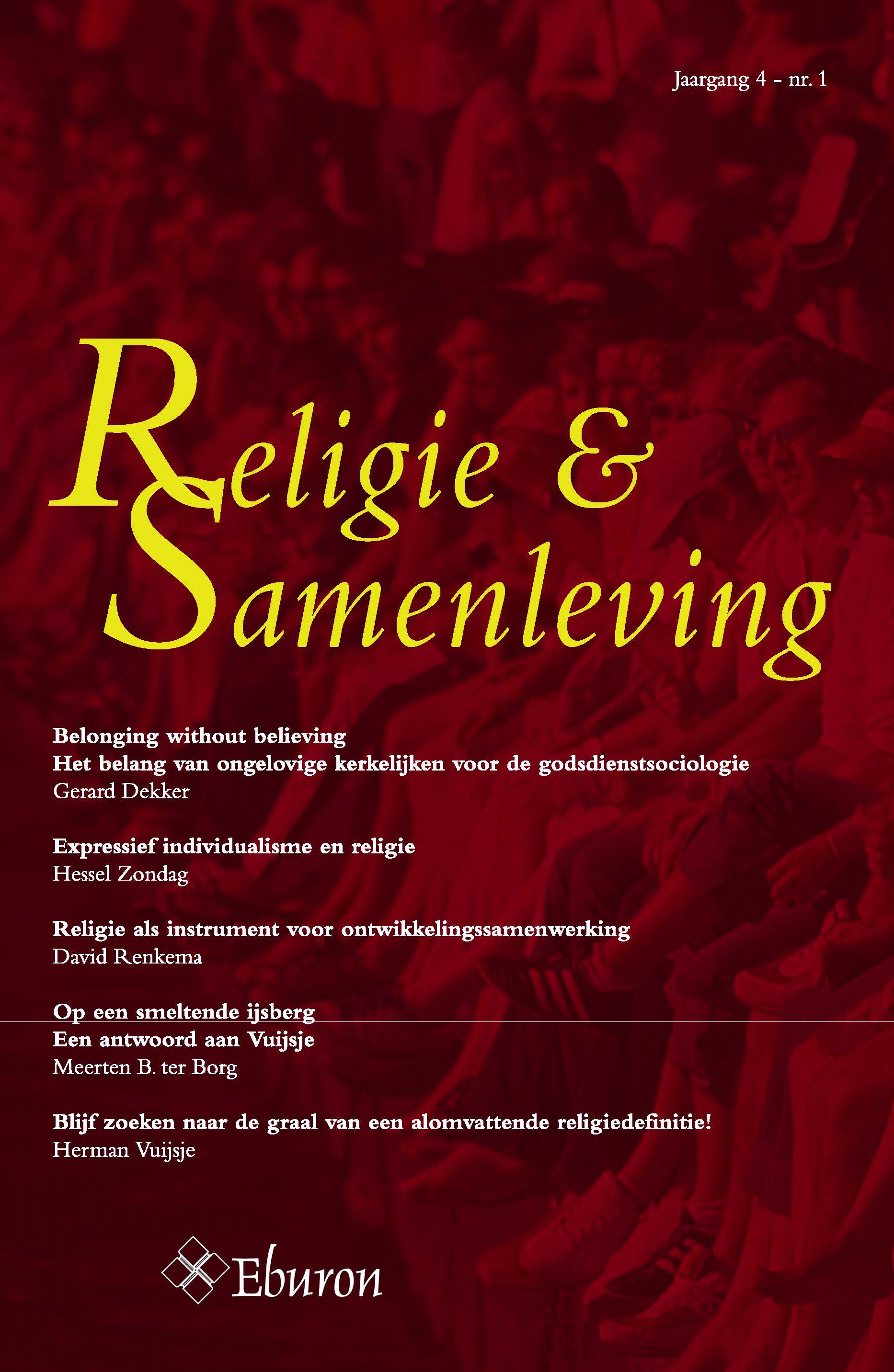Belonging without believing
Het belang van ongelovige kerkelijken voor de godsdienstsociologie
DOI:
https://doi.org/10.54195/RS.13132Samenvatting
Especially during the middle of the twentieth century church membership and religiosity did no longer coincide in the Netherlands. Forms of non-church religiosity did appear: ‘church outside the church’ and alternative religiosity. Much attention has been given to this ‘believing without belonging’. But there seems to be also a group of people who are not religious, but nevertheless church member. This is especially the case within the big churches in the Netherlands. That group proves to be bigger than the group of believers outside the church. This article asks attention for the phenomenon of ‘belonging without believing’. Especially for sociologists this phenomenon is important: the church is the most important religious institution and it is not impossible that the character of this institute as well as its place within society will change as a result of the presence of many non-believers in it.




